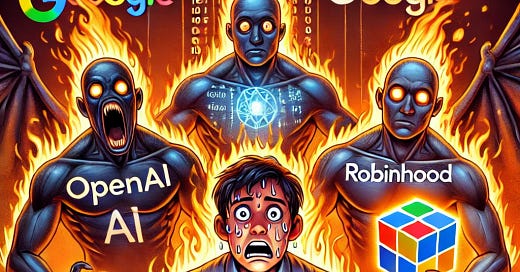Job interviews are stressful. You try to show up your best and put your best foot forward and very often you get the door slammed in your face. Learning from job interview rejections is one of the most important things you will do in your career!
In this article, I’ll be diving deep into each rejection I faced through out my ten year engineering career a…
Keep reading with a 7-day free trial
Subscribe to DataEngineer.io Newsletter to keep reading this post and get 7 days of free access to the full post archives.



